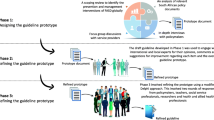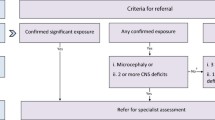Abstract
Background/Objective
Alcohol is a teratogen. Fetal alcohol spectrum disorders (FASDs) affect about 1% of live births, causing severe impairment. Individuals affected by FASDs are over-represented in psychiatric settings.This study reports on the education and experience of psychiatry trainees in approaching FASDs.
Method
Data were collected from psychiatry trainees throughout the country by use of a web-based questionnaire.
Results
A representative sample (N=308) of psychiatry trainees responded; 19% rate their education on FASDs as “good” or “excellent,” and 89% report that they would like more education on FASDs: 6%, 15%, and 30%, endorsed the statement “It is safe to drink some alcohol” during the 1st, 2nd, and 3rd trimesters, respectively. Only 31% correctly report that individuals with an FASD are at equal risk for adverse outcomes as individuals with full -blown fetal alcohol syndrome.
Conclusions
Results reveal that training on FASDs is inadequate. Psychiatry trainees poorly understand the importance of abstinence throughout pregnancy. Trainees who report receiving supervision specifically addressing FASDs also report making the diagnosis much more frequently, suggesting that supervision in clinical settings is effective teaching. Results reveal that FASDs are underrecognized, resulting in missed opportunities for prevention and intervention.
Similar content being viewed by others
References
Gahagan S, Sharpe TT, Brirnacombe M, et al: Pediatricians’ knowledge, training, and experience in the care of children with fetal alcohol syndrome. Pediatrics 2006; 118:e657–e668
May PA, Gossage JP: Estimating the prevalence of fetal alcohol syndrome: a summary. Alcohol Res Health 2001; 25:159–167
Streissguth AP, Barr HM, Kogan J, et al: Understanding the Occurrence of Secondary Disabilities in Clients with Fetal Alcohol Syndrome (FAS) and Fetal Alcohol Effects (FAE): Final Report to the Center for Disease Control. Atlanta, GA, 1996
CDC: Alcohol Consumption Among Women Who Are Pregnant or Who Might Become Pregnant. 2004; 53(50):1178–1181
Astley SJ, Bailey D, Talbot C, et al: Fetal alcohol syndrome (FAS): primary prevention through FAS diagnosis, I: identification of high-risk birth mothers through the diagnosis of their children. Alcohol Alcohol 2000; 35:499–508
O’Connor MJ, McCracken JT, Best A: Underrecognition of prenatal alcohol exposure in a child inpatient psychiatric setting. Ment Health Aspects Dev Disabil Fall 2006; 9:105–108
Author information
Authors and Affiliations
Corresponding author
Rights and permissions
About this article
Cite this article
Eyal, R., O’Connor, M.J. Psychiatry Trainees’ Training and Experience in Fetal Alcohol Spectrum Disorders. Acad Psychiatry 35, 238–240 (2011). https://doi.org/10.1176/appi.ap.35.4.238
Received:
Revised:
Accepted:
Published:
Issue Date:
DOI: https://doi.org/10.1176/appi.ap.35.4.238




